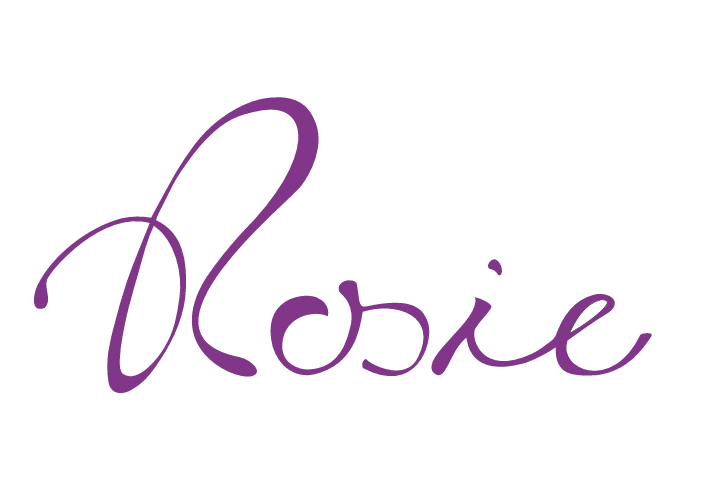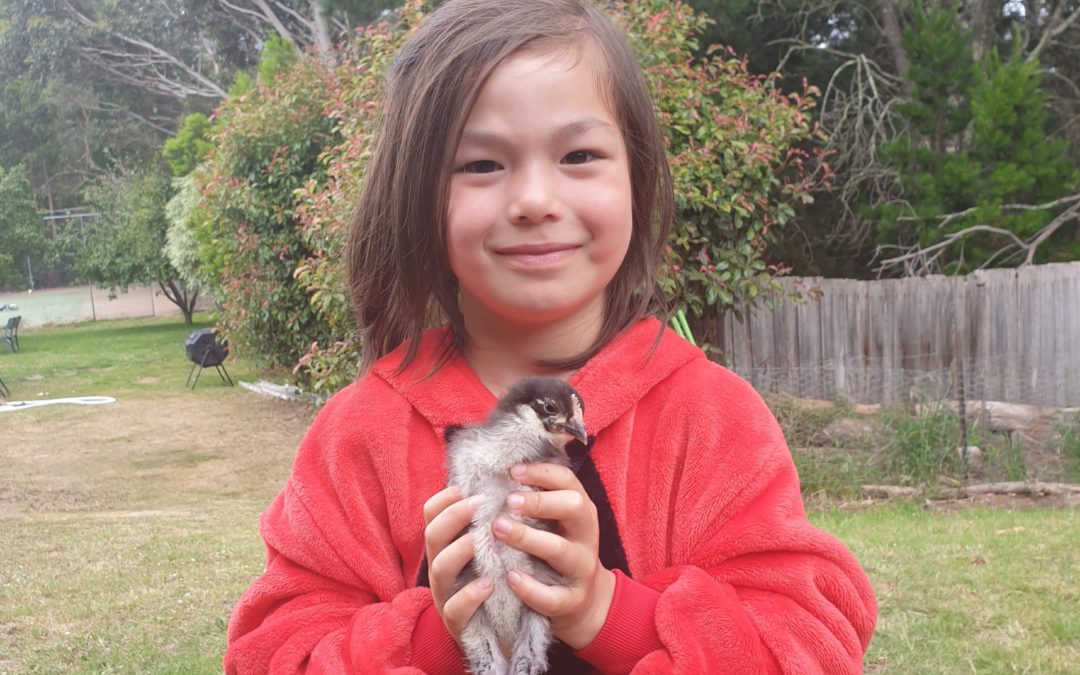The five-year-old who lives at my house came bowling up the hill at me clutching one of his eight-week-old chickens.
“Grand!” he shouted (he calls me ‘Grand’). “This is Charlie. She’s the most imperious of our chickens.”
Delighted with this unexpected and rather fabulous bit of language and connection, I burst with “Imperious? How do you know she’s imperious?”
“Well, she’s got to be the first one to get into everything! And she always pushes the other chickens out of the way.”
So… he had the meaning. Amazing! And I was duly amazed and celebrated the overflowing delight in Charlie.
But in the next moment I found myself reflecting through my lens as a speech pathologist rather than an in-the-garden, everything-is-adorable-about-this-kid grandmother. What he had just said was actually not amazing at all. It was a representation of the normal processes of vocabulary development when all is going well for a child.
‘Imperious’ is not really a ‘harder’ word to learn than one of its synonyms, say, ‘bossy’. If a child hears any word enough times, they’ll learn it. Children benefit from hearing new words repeatedly. And they’ll learn those words even faster if they hear them during experiences that are charged with strong emotion – case in point: the fascination and laughter of watching an imperious chick snatch a worm and bolt around the coop in a high-stakes, fowl-version of keepings-off with its squawking siblings. If the child hears ‘bossy’ while this hilarity is going on, he’ll[1] learn ‘bossy’. If he hears ‘imperious’… he’ll learn that.
Most of us would choose to use ‘bossy’ with a five-year-old in such a situation. The word seems easier. For starters it has two syllables rather than four. (This is certainly easier if a child has a pronunciation problem. But if she knows and uses ‘helicopter’ and ‘hippopotamus’, she should do ok with ‘imperious’ once she’s learned it.) It’s also true that ‘bossy’ is in the common vernacular. This makes it seem an easier word too.
It is sensible to present the ‘common’ words (such as ‘bossy’) to children developing language. These are the words they’ll hear in use by others, so they’ll hear them more often – which will help establish them in their vocabularies. Also, and this is really important, they need the common words as they connect and navigate their social worlds. To connect with same-age peers and be part of the five-year-old social scene, they need the words that their peers are using.
But too often, we stop at the common words. And this is not sensible.
In the midst of the excitement of, say, a great worm chase, exist the perfect neurological conditions to plug-in any fabulous word we want! So we should! In this heightened delight, a fountain of dopamine floods the alert little cognitive processing system and acts like the brain’s ‘save’ button. It will ‘save’ a huge amount of what is going on in these moments. So these are the times to grab, to pour-in some super, expansive vocabulary. Doused with that stimulating cocktail of neurotransmitters, the new word will begin to take-hold in the child’s word bank. Keep pouring-in the repetitions on a regular basis for a few weeks and the new word will become established.
A wide vocabulary of both words that are known and words that are used is one of the greatest skills that we can support in a child. It accelerates her into knowledge. Language is a system of symbols that encodes our knowledge. Words are units of knowledge-building.
We should use a variety of complex words with our little children for another reason. Developmentally, during their childhoods, their brains are equipped with a profusion of connections called synapses. The extra synapses of childhood are the perfect neurological equipment for new words to become established. In children’s brains, millions of synaptic connections are primed and waiting to be called into action. If we don’t call them into action, the brain eventually pares them away.
So the main message is: activate all that young potential and get those connections into gear by surrounding your child’s potent little brain with a huge range of fabulous words.
Five-year-old brains are like Ferraris. There’s a lot of power under the bonnet (pun intended). Don’t be conservative with the words you use with little children – be flamboyant and stretch them far. Their connected-up brains can take on just about any word you offer when it is joyful and repeated.
Developing your child’s vocabulary is a road trip in that Ferrari that will invest huge dividends into the whole of their life. Rev the engine and accelerate them into language.
And not only your child. Pour in fuel for the development of all children’s expanded vocabularies. Take it on as a community project that you can fulfil in every casual interaction you have with the children who are regularly in your life and who happen to come across your path in other places. This is a wonderful message that is also promoted in the social movement that is The Basics Tasmania. There are widespread social benefits that can emerge from generously bringing nourishing interactions to all children.
My little grand-guy has been fortunate to master ‘imperious’ with no knowledge of how fabulous that is for him. All he knew about our conversation was the joy of connecting and sharing stories. He and I went on to talk about ‘bossy’ and a few other synonyms. Turns out, he knew ‘bossy’ as well. So our conversation added a bit more texture of meaning to this word. It gave ‘imperious’ more texture too.
As it happens, little grand-guy is also lucky to be growing up learning the Chinese language as a mother tongue in addition to English. We know that if children are exposed to two languages, they will readily learn them both. Learning a whole other language using their connected-up little brains is its own kind of demonstration that a lot of extra vocabulary learning can happen in children if we will just expose them to it.
You may not have a second language to give your child. But you can go right ahead and give her more of the power of the wide vocabulary of English. It’s not imperious to do so. It’s a gift of lifelong enrichment.
[1] Pronouns are mixed intentionally in this post

